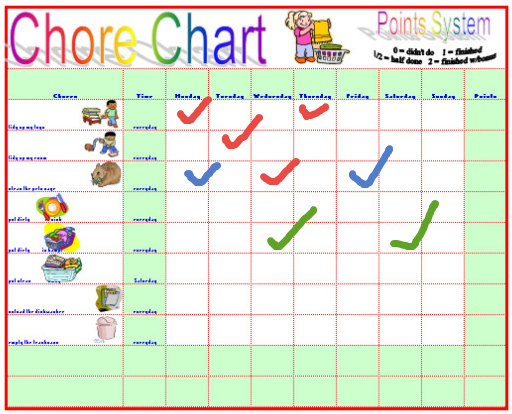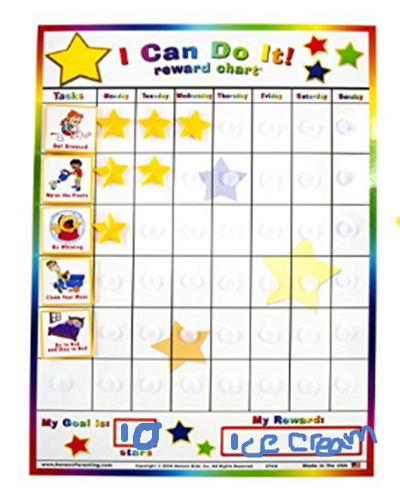3 Chore Chart Options for Preschoolers

Most people had chores they were responsible for while growing up. Maybe it was your job to keep the lawn mowed, set the table, clean the bathrooms each Saturday, or some other necessary household task. Regardless of how the family you grew up in approached chores, it’s always a challenge to figure out how you want your own family to navigate these responsibilities.
The key is to start early. Teaching children that household chores are part of everyday life at a young age can help alleviate the frustration older children feel when they suddenly have to contribute to the family’s responsibilities. To put it bluntly, try to get it in their heads before they know anything different!
How Young is Too Young?
Christian homeschooling can be challenging enough and you may think that your preschooler is too young for household chores. But how young is too young? Usually as soon as your child understands basic directions, you can begin teaching them responsibility. For example, a two-year old can learn to pick up their toys, as well as put their clothes in a hamper. They love being around you, so anything you can teach them while talking to them or singing to them will not only be bonding time, but it can also slowly teach them how to do their chores.
Finding the Right Chore Chart
There are a plethora of homeschooling resources, but if you’re looking for help with the basics of age-appropriate chores, check out Latitudes.org where you’ll find information about age-appropriate chores, as well as free printable charts.
Here are some other places to find chore charts:
- Pinterest – Search “chore charts” and you can browse, pin, and even download selected charts for free. If nothing else, it provides you with a good visual of many different types of charts.
- Focus on the Family – This is another resource with suggested age-appropriate chores as well as chart examples for Christian families. It also provides listening suggestions to use while your child is “working.”
Chore Charts for Preschoolers
Here are a few considerations for selecting a chore chart for a preschooler:
- KYC (Know Your Child) – How much do they understand? How coordinated are they? How well do they follow directions? Each child is different. One child may be able to stay on task, while another child will struggle with simple instructions because they are too busy. Regardless of the challenge, and regardless of the type of chart you use, you will probably need a different chart suited to the needs of each child. Customize it accordingly.
- Determine the Reward – Some parents feel very strongly that a child should learn to do their part for the family without the expectation of a reward. This may work for your family, but remember that rewards don’t have to be monetary. They can come in the form of staying up a little later, choosing what the family watches on movie night, or just simply a trip to get an ice cream cone. Again, KYC: learn what is important to them and what motivates them, and use this as an opportunity to teach them about the personal internal reward for doing a good job. If you praise them for completing tasks, you might find out that this is all they want!
It’s also important to select a chart that is easily understandable for your child. Most preschoolers don’t understand words, but they understand pictures. Here are some examples of charts for preschoolers:
Chart 1 – This is a two-fold chart that can grow with your child. It has pictures initially, but as your child grows, you can use it as a points system (see upper right hand corner).

Chart 2 – This is probably as simple a chart as you can find and it’s an excellent choice for a preschooler. Pictures help them see their task, but they get to place checks or Xs to signify the task was completed.

Chart 3 – This chart uses pictures, but gives the child an opportunity to add gold stars to their completed tasks. Notice the goal-setting number at the bottom determined by either the child or the parent for a predetermined reward.

As we all know, parenting is a challenge – and sometimes Christian parenting seems even more so. But training up a child is important and it needs to start early. What better way to do so than to start with basic tasks while they are young.
These charts are resources to help your child understand responsibility, but they also assist with basic child development. Helping you make the bed requires a certain amount of coordination, as well as a growing understanding of how things work and should look. Your involvement in their chores is helping their development, but most importantly, the time you spend with them is guiding and helping them become responsible people no matter their age.